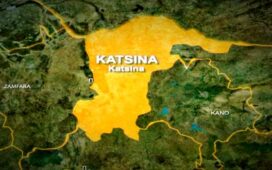Introduction to Home Economics
Home Economics is a vital subject that teaches essential life skills, including cooking, nutrition, family living, budgeting, and resource management. It is offered in Nigerian secondary schools and higher education institutions. If you’re interested in Home Economics, several related subjects can enhance your knowledge and career prospects.
What is Home Economics About?
Home Economics focuses on efficient household management and resource utilization. Key areas include:
- Food and Nutrition: Cooking techniques, meal planning, and healthy eating habits.
- Clothing and Textile: Sewing, fashion design, and fabric knowledge.
- Home Management: Budgeting, time management, and resource organization.
- Child Development: Understanding child growth and caregiving.
This subject provides practical skills applicable to everyday life and various professions.
Subjects Related to Home Economics in Nigeria
Students passionate about Home Economics can explore related subjects that broaden career opportunities in nutrition, fashion, hospitality, and education. Below are key subjects connected to Home Economics:
| Subject | Description |
|---|---|
| Food and Nutrition | Covers meal preparation, dietary planning, and nutritional science. Essential for careers in dietetics and culinary arts. |
| Clothing and Textile | Focuses on sewing, fabric selection, and fashion trends. Useful for aspiring fashion designers and tailors. |
| Home Management | Teaches budgeting, household organization, and financial planning. Crucial for family and business management. |
| Child Development | Examines child growth stages and parenting skills. Ideal for educators and childcare professionals. |
| Consumer Education | Educates on smart purchasing, consumer rights, and personal finance management. |
| Agricultural Science | Links food production to nutrition. Important for farming and agribusiness careers. |
| Health Education | Covers hygiene, wellness, and healthcare practices. Useful for public health and family welfare roles. |
| Economics | Teaches resource allocation, budgeting, and financial decision-making. |
| Biology | Provides insights into human health, reproduction, and food science. Valuable for nutritionists and healthcare workers. |
| Fine and Applied Arts | Enhances creativity in clothing design and home decoration. |
| Physical and Health Education | Promotes fitness and healthy living, complementing nutrition studies. |
| Technical Drawing | Useful for interior design and architectural planning. |
| Commerce | Introduces business principles applicable to home-based enterprises. |
| Entrepreneurship | Equips students with skills to start businesses in catering, fashion, or childcare. |
How These Subjects Connect to Home Economics
These subjects expand a student’s ability to manage resources effectively in personal and professional settings. For example:
- Food and Nutrition enhances meal preparation skills.
- Clothing and Textile supports fashion entrepreneurship.
- Home Management improves financial planning for households.
- Child Development prepares individuals for parenting or childcare careers.
Importance of Home Economics and Related Subjects
Studying Home Economics and its related fields provides practical benefits, including:
✔ Cooking and nutrition knowledge for healthier living.
✔ Sewing and design skills for fashion and repairs.
✔ Budgeting expertise for financial independence.
✔ Childcare training for family and professional caregiving.
These skills open doors to careers in:
- Nutrition & Dietetics
- Fashion Design & Tailoring
- Hospitality & Catering
- Childcare & Education
- Entrepreneurship (e.g., catering, fashion startups)
Why Study Home Economics?
Here’s why Home Economics is a valuable field:
✅ Lifelong Skills – Learn practical abilities for daily life.
✅ Diverse Career Paths – High demand in food, fashion, and education sectors.
✅ Entrepreneurial Opportunities – Start a business in catering, tailoring, or daycare services.












